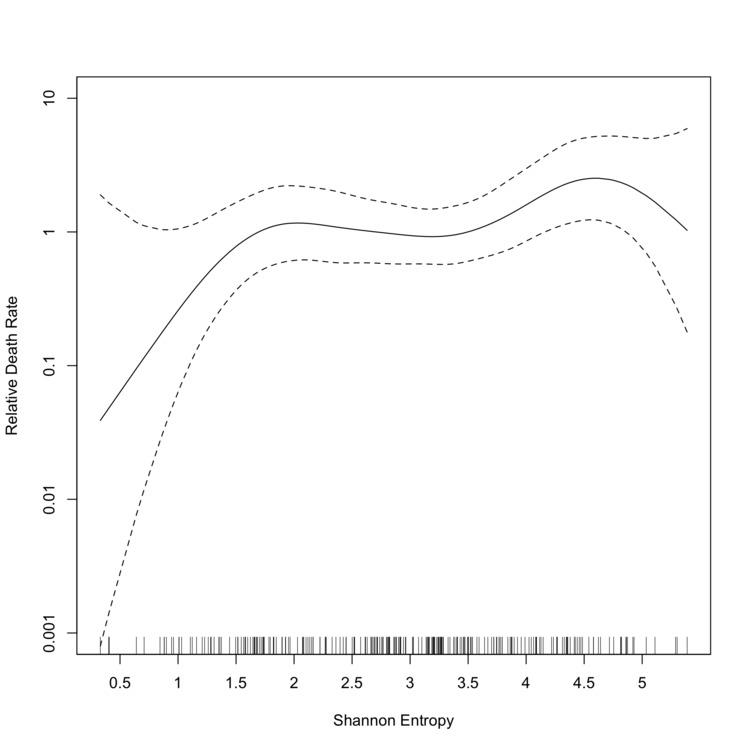Abstract
Background: Lesser a-diversity of the lung microbiome in idiopathic pulmonary fibrosis (IPF) is associated with more severe disease. Buccal microbiome may be an extension of the respiratory tract?s microbiome and a prognostic marker.
Objective: We hypothesize lower buccal microbiome a-diversity is associated with worse survival.
Methods: Buccal swabs were obtained from subjects enrolled in the CleanUP-IPF study (NCT02759120). Microbiome extraction and analysis were performed at the University of California San Diego. We used Cox proportional hazards models to examine associations of the Shannon index with survival and adjusted for age, sex, smoking history, and baseline forced vital capacity and diffusing capacity.
Results: The mean (standard deviation) of the Shannon index was 2.9 (1.1). Contrary to hypothesis, 1-unit increase in the Shannon diversity index was associated with a hazard ratio of 1.40 (95% CI 1.02-1.91) in the usual standard of care group (n=251) and 0.90 (95% CI 0.66-1.23) in the antibiotic group (n=235). In the usual standard of care group, those who died had lower relative abundance of Streptococcus compared with those who survived (42% vs. 50%, p=0.04).
Conclusions: Contrary to our hypothesis, greater buccal microbiome diversity was associated with worse survival and may be a predictive tool of survival in IPF. Independent replication and mechanistic studies are needed.
